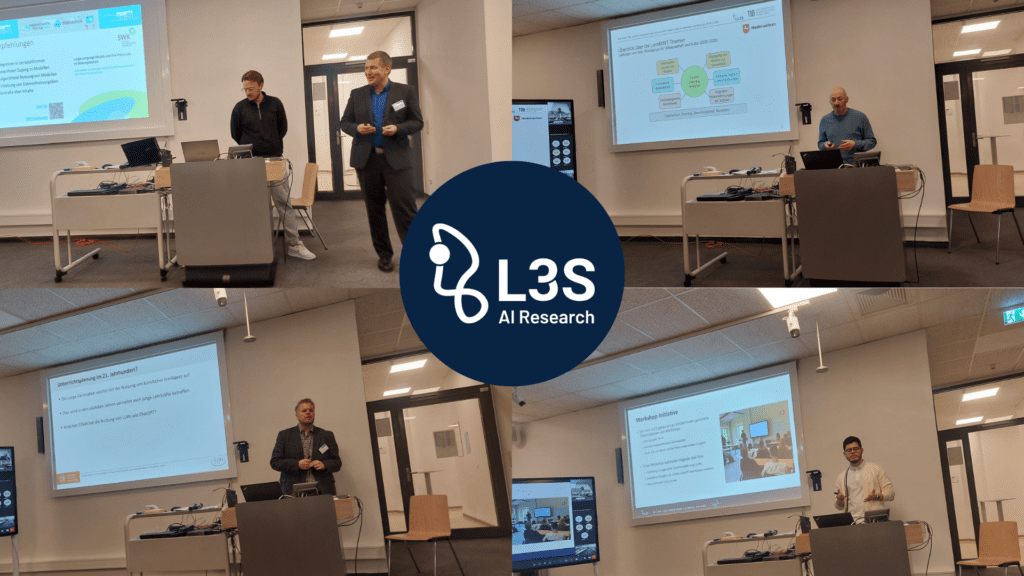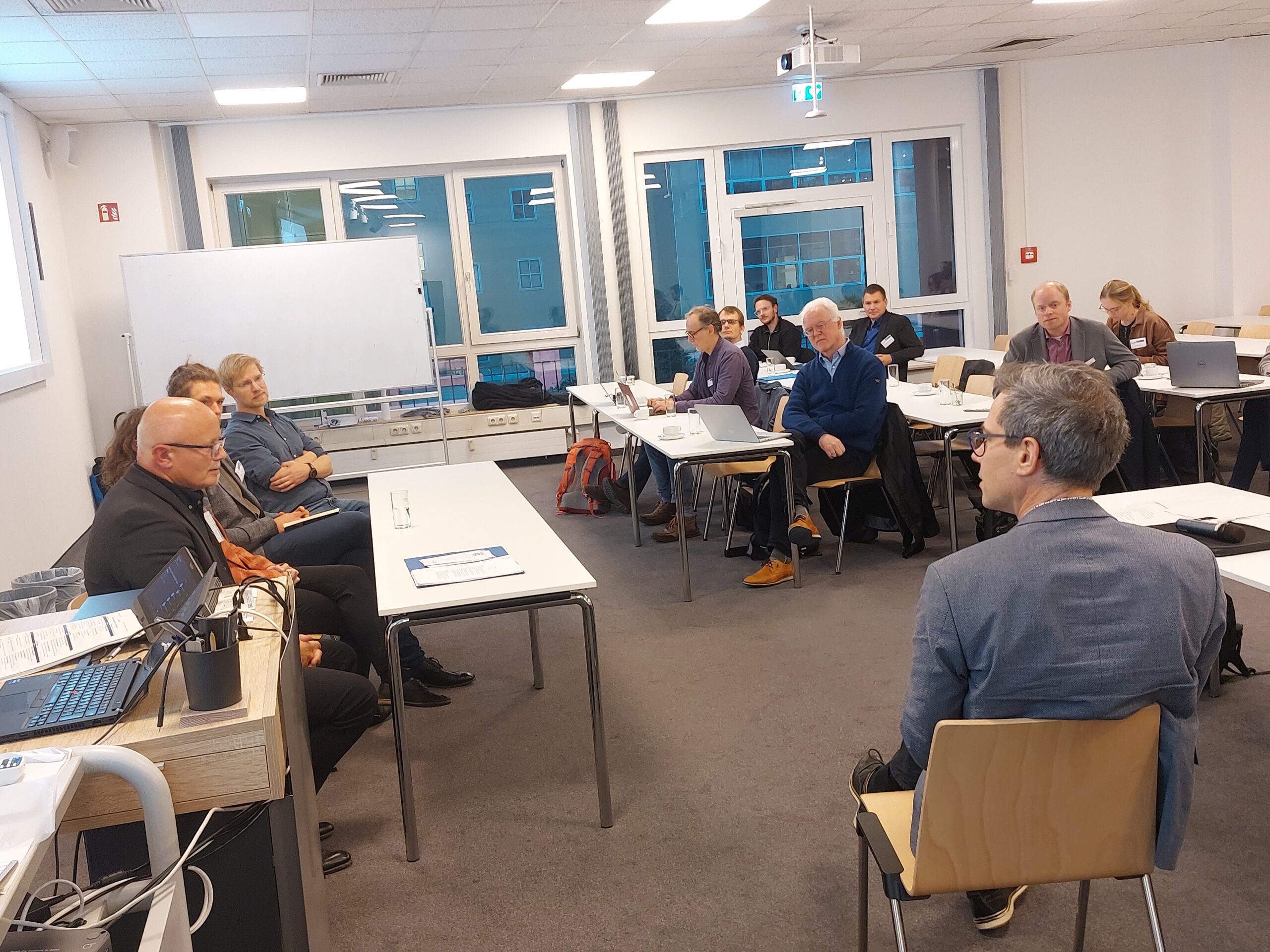On 8 November, around 50 experts and interested parties met at the workshop “Large Language Models in Education”, organized by L3S and TIB. The aim of the event was to shed light on the use of large language models (LLMs) in schools and universities. The opportunities and challenges that LLMs offer teachers and learners were discussed, as well as which potentials are still not being used.
One focus of the workshop was on interdisciplinary exchange: experts from computer science, educational research, didactics and psychology presented the latest findings and possible applications of LLMs. From the field of computer science, for example, Wolfgang Nejdl – via an AI-generated podcast – and Enkelejda Kasneci reported on the many possible applications of LLMs in schools – from personalized tutors to reading assistants. Markus Huff and Thorben Jansen presented study results on how teachers and students interact with LLMs. Cornelius Herz and Alexander Büssing gave an impression of the influence LLMs will have on literature and science didactics in the future. For a practical outlook, Christian Burrichter and Johannes Felbermair from the state initiative n-21 showed how a personal tutor can be integrated into learning management systems.
In the concluding panel, Jennifer Wengler, Michael Sternberg, Thorben Jansen and Henning Wachsmuth discussed the findings from the workshop under the moderation of Markus Huff.
One tension in particular was highlighted:On the one hand, the enormous dynamism in the further development of LLMs means that teachers need to keep a constant eye on this development. On the other hand, however, these LLMs are currently not yet able to implement all the requirements for use in the classroom – such as the adaptability to respond individually to individual learners.
https://events.l3s.uni-hannover.de/de/e/1/large-language-models-in-der-bildung.



